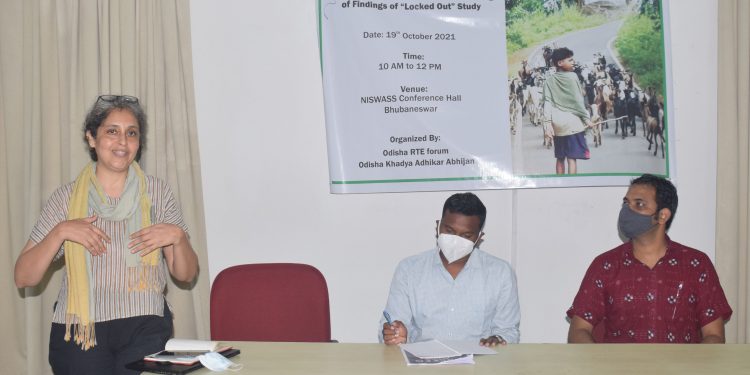Bhubaneswar: Schools in India have been closed for a full 17 months. During this period a small minority of privileged children were able to study online in the comfort and safety of their homes. The rest, however, were locked out of schools.
Some struggled to continue studying, online or offline. Many others gave up and spent months milling around the village. They were deprived not only of the right to learn but also of other benefits of school participation such as safe environment, good nutrition and a healthy social life.
This was presented in a report on school education titled ‘Locked Out’ jointly prepared by nearly 100 volunteers in 15 states and Union Territories (UTs) including Odisha, Assam, Bihar, Chandigarh, Delhi, Gujarat, Haryana, Jharkhand, Karnataka, Madhya Pradesh, Maharashtra, Punjab, Tamil Nadu, Uttar Pradesh and West Bengal.
The report was prepared by coordination team of Nirali Bakhla, Jean Dreze, Vipul Paikra and Reetika Khera.
Presenting the report Tuesday at the National Institute of Social Work and Social Sciences in Bhubaneswar, Reetika Khera, development economist and associate professor (economics), IIT-Delhi said the survey focused on relatively deprived hamlets and bastis where children generally attend government schools. In each of the 1,362 sample households we interviewed one child enrolled at the primary or upper primary level.
The survey brings out the catastrophic consequences of school closure in the last year and half. In rural areas, only 8 per cent of kids study online regularly and 37 per cent don’t study at all and about half are unable to read more than a few words. Most parents want schools to reopen as soon as possible.
Out of 1,400 household who were interviewed, about 60 per cent of sample households reside in rural areas and close to 60 per cent belong to Dalit and Adivasi communities.






































